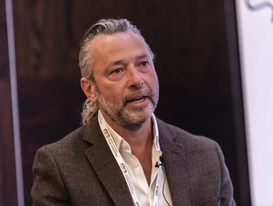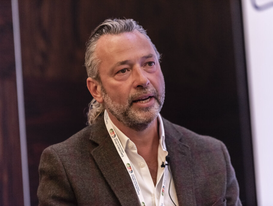
How Africa Can Finance Its Own Internet Exchange Network
Over the last decade, Africa’s progress in building Internet Exchange Points (IXPs) has quietly become one of the continent’s most important and undervalued infrastructure stories.

Over the last decade, Africa’s progress in building Internet Exchange Points (IXPs) has quietly become one of the continent’s most important and undervalued infrastructure stories.

There remains an uncomfortable truth about technology investment – rigidity costs more than it saves. All-in-one systems, long-term vendor dependencies and software lock-ins are giving way to a new reality where success rests on how rapidly an organisation can move, connect and adapt to changes and disruptions in the market. Digital transformation is estimated at $30.24bn in 2025 and expected to reach $63.31bn by 2030. While the conversation around digital transformation is still highly relevant and ongoing, it is now also shifting to incorporate digital composition.

By Adam Bateman (top), Head: Business Development & Strategic Partnerships, Investor Services and Johan De Bruyn, Head: Fund Services, Investor Services, Standard Bank CIB

After a turbulent few years marked by shrinking valuations and investor pullback, the global fintech industry is turning the page. According to the newly released Global Fintech Report—a joint effort by Boston Consulting Group (BCG) and QED Investors—2024 marked a defining moment for the sector. The report, titled "Fintech’s Next Chapter: Scaled Winners and Emerging Disruptors," paints a picture of an industry not only recovering, but maturing, diversifying, and preparing for its next phase of growth.

Institutional investors are increasingly incorporating Exchange Traded Funds (ETFs) into their portfolios, attracted by their cost efficiency, transparency, and liquidity. As the investment landscape becomes more complex and cost-sensitive, ETFs are proving to be a powerful tool for modern portfolio management. This article explores their growing role in institutional investing, advantages over traditional investment vehicles, and their impact on market liquidity and institutional strategy.

In today’s rapidly evolving business landscape, digital transformation is no longer a luxury but a necessity for organisations aiming to stay competitive and relevant. For African enterprises, the potential of digital transformation to unlock growth and innovation is immense. However, significant challenges—from ageing legacy systems to limited resources—often impede progress. All these challenges can, however, be overcome with the right partnerships.

On a continent where the lack of access to advanced medical technology contributes to millions of preventable deaths every year, the recent commissioning of South Africa’s first pay-per-use PET-CT scanner is significant.

Roha Medical Campus (RMC), a $130 million multispecialty hospital under construction in Addis Ababa, is breaking new ground as Ethiopia’s first healthcare facility to receive recognition under a sustainability program developed by the International Finance Corporation (IFC), part of the World Bank Group.

By Lorna Pillay, Head of Corporates, Private and Institutional Asset Owners, Africa, India & Middle East, IQ-EQ
-crop-c0-55__0-46-273x206.png)
Before the global pandemic, a trend among investment managers toward outsourcing was already on the rise, driven by increasing investor and regulatory demands. Finding (and retaining) talent is a nearly unprecedented challenge, and even large firms are struggling to keep pace with the rapid advances in technology. In today’s fast-paced business environment, investment managers are constantly seeking ways to optimise their operations and focus on their core competencies. We’re all familiar with alternative funds outsourcing their fund accounting and administration, but this article focuses on the outsourcing of financial statements preparation to a third-party firm, that is not the fund administrator.

By Thobile Finca, Strategic Partnerships, Manager, African Women Impact Fund Foundation (AWIFF), Standard Bank

The Mauritius International Financial Centre (IFC) has emerged as a pivotal gateway for investment into Africa. As the continent's economic powerhouses continue to rise, with the African Development Bank projecting that Africa will account for eleven of the world’s twenty fastest-growing economies this year, Mauritius is strategically positioning itself to harness this growth, driving innovation and sophistication to the IFC through cutting-edge products including variable capital companies (VCC), virtual asset and initial token offering services (VAITOS), ESG and green bonds.

Bishop Godfrey Kariuki has been farming his family’s one-acre smallholding on the foothills of Mount Kenya all his life. It has been a struggle to earn enough to feed his wife and three daughters.

Globally, 69% of the top-performing funds have general partners who are women, and 65% of institutional investors consider gender diversity a key criterion when investing. Research by the International Finance Corporation found that gender-diverse fund management teams deliver an incremental 10-20% in net IRR returns compared to non-diverse teams. Women funders are also two times more likely to invest in start-ups with one woman founder, and three times more likely to invest in a woman CEO.